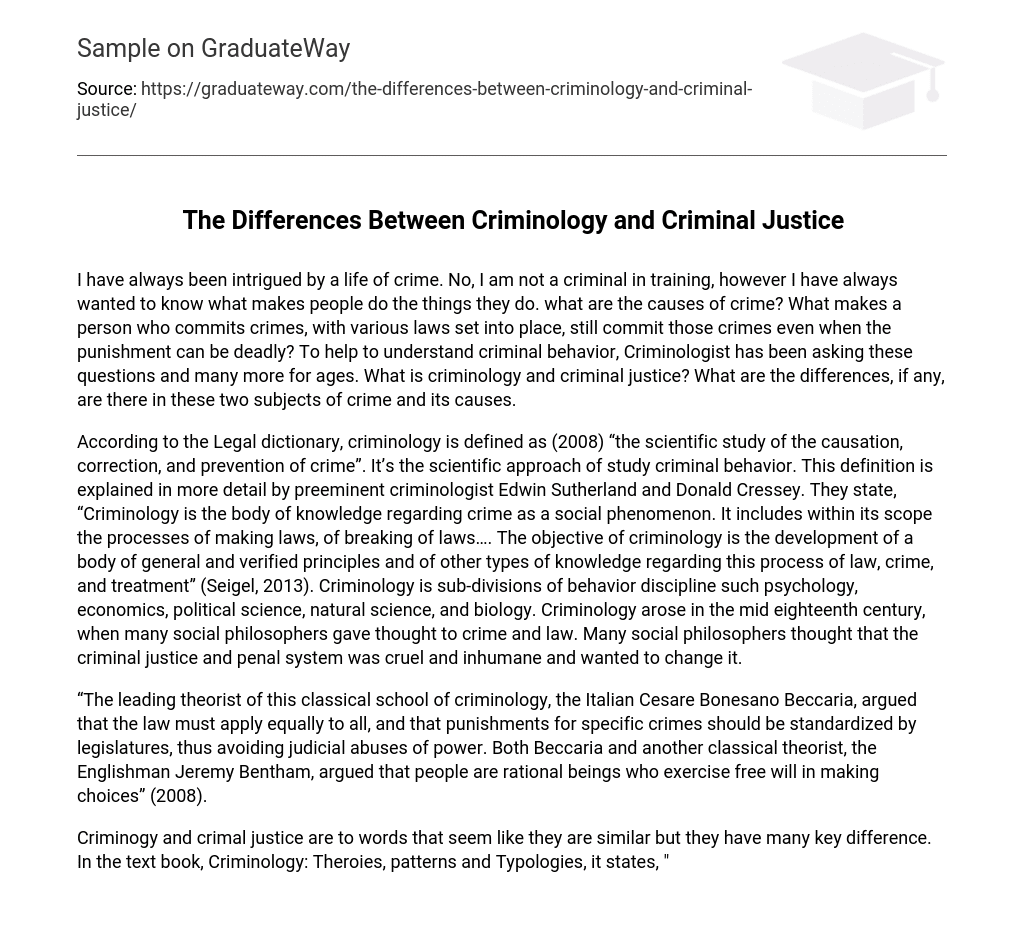While I am not a criminal myself, I have long been fascinated by the world of crime and seeking to comprehend the reasons behind it. The motivations for committing crimes and the persistence of illegal behavior in spite of harsh consequences have always intrigued me. For numerous years, criminologists have delved into these inquiries and more. Hence, what precisely is criminology alongside criminal justice? Do these two fields differ in their examination of crime and its genesis?
According to the Legal dictionary (2008), criminology is a scientific study that focuses on crime, including its causes, correction, and prevention. Edwin Sutherland and Donald Cressey further define criminology as the body of knowledge that deals with crime as a social phenomenon, encompassing the processes of making and breaking laws. Seigel (2013) states that the goal of criminology is to develop general principles and other types of knowledge related to law, crime, and treatment. Criminology is considered a sub-division within various disciplines such as psychology, economics, political science, natural science, and biology. Its origins can be traced back to the mid-eighteenth century when social philosophers questioned the cruelty and inhumanity of the criminal justice system while advocating for reform.
According to the text, the primary proponent of the classical school of criminology was Cesare Bonesano Beccaria, an Italian theorist. Beccaria believed that the law should be applied uniformly to all individuals and that punishments for crimes should be determined by legislatures to prevent unfair use of power by the judiciary. Jeremy Bentham, an English theorist, shared similar views with Beccaria, asserting that humans are rational beings who possess free will in decision-making (2008).
Both criminology and criminal justice may appear similar, but they actually possess distinct differences. According to the text book “Criminology: Theories, Patterns, and Typologies,” it affirms that





